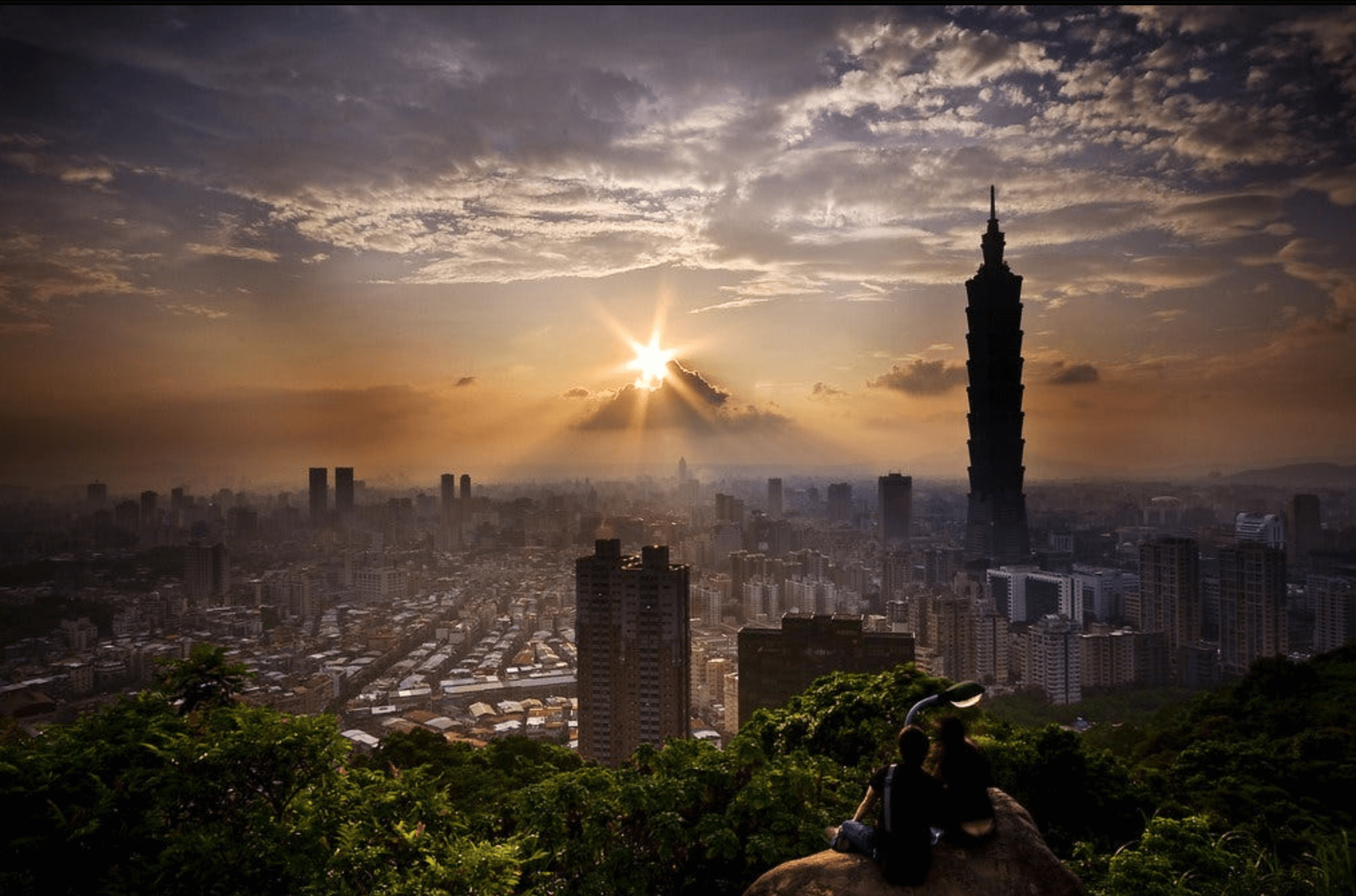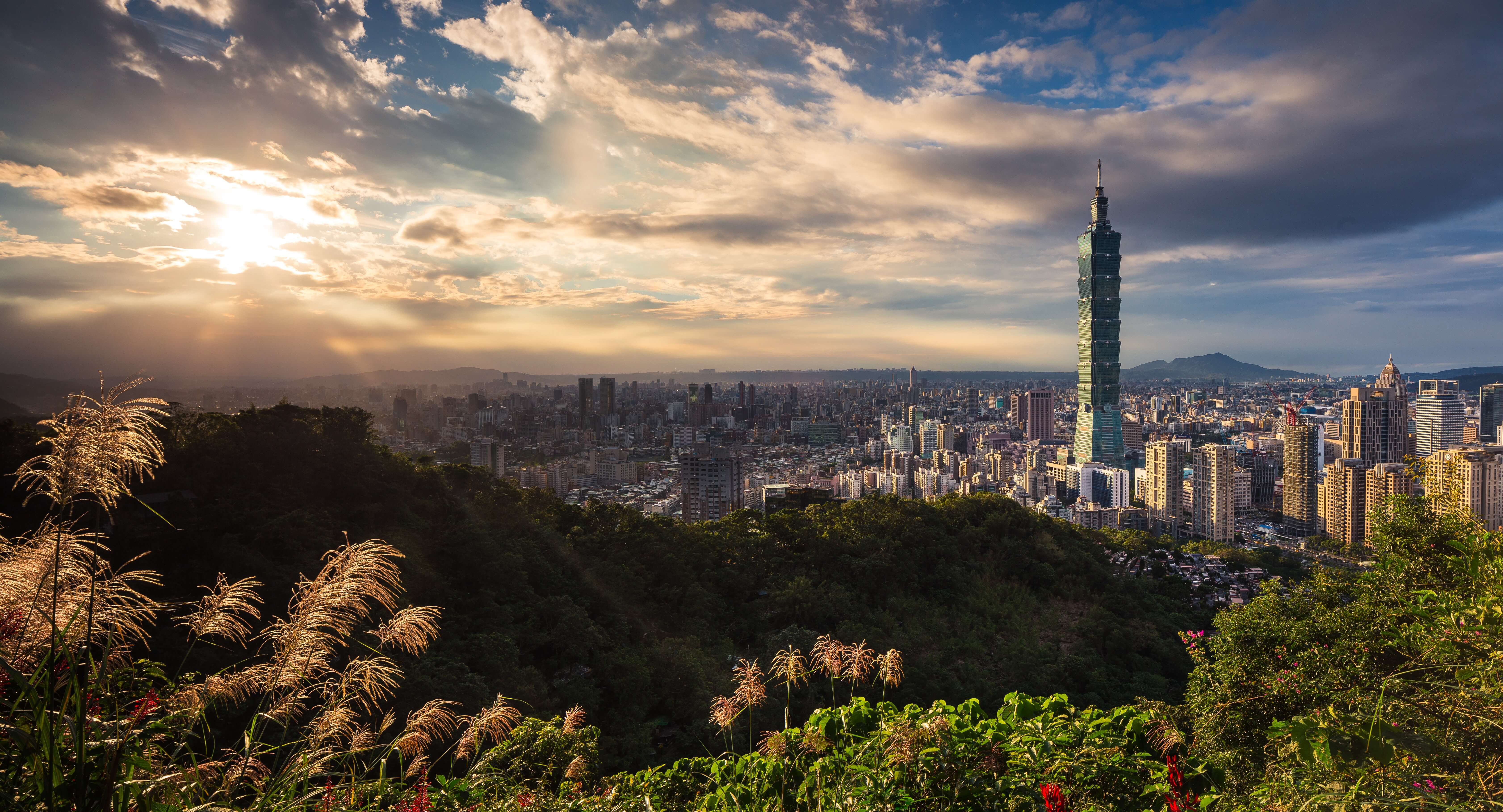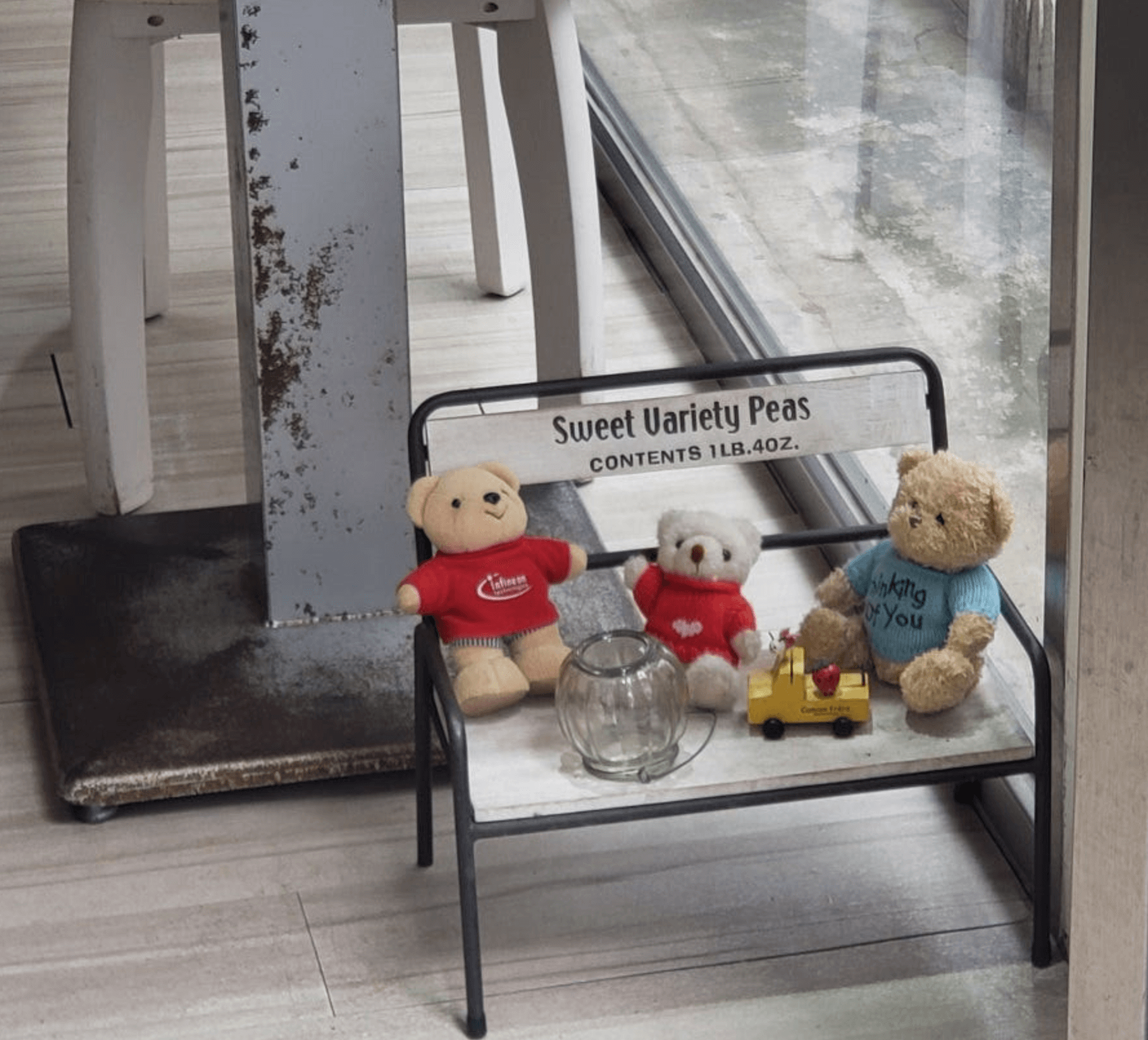原始文章
关于台湾,我首先注意到的是每个人看起来都很悠闲。 纽约、东京和上海等特大城市充满了狂热的能量; 在台北,每个人似乎都在闲逛。 人们并不着急,他们不执着于细节和忙碌的工作。 在乡下的十一天裡,我一次也没有听到提高的声音,也没有看到任何形式的分歧,也没有看到两个人互相妨碍。 在日本,人们盛装打扮去便利店; 在台湾,时尚街区的人们看起来就像在 Target 购物。 当我问数码部部长邓丽君,为什么台北不多改造一些破旧的旧建筑时,她回答说“没有压力”。
The first thing I noticed about Taiwan was how laid-back everybody seemed. Megacities like New York, Tokyo, and Shanghai are suffused with a frenetic energy; in Taipei everyone just kind of seems to saunter along. People are not in a hurry, they are not obsessed with details and busy-work. In eleven days in the country, I didn’t once hear raised voices, or witness a disagreement of any kind, or see two people get in each other’s way. In Japan people dress up to go to the convenience store; in Taiwan people in trendy neighborhoods look like they shop at Target. When I asked Audrey Tang, the Minister of Digital Affairs, why Taipei doesn’t renovate more of its dilapidated old buildings, she replied “There’s no social pressure for that.”
哦,对了……我遇到了 Audrey Tang! 由于她极度透明的理想,我们讨论的公开记录将在几天内公佈。 我们认识的方式非常符合我对悠闲台湾的印象——我在一次社交活动中偶然遇到了她的一个朋友,他只是给她发了一封简短的电子邮件。 唐是我心目中的英雄,谈话在各个方面都达到或超出了我的高期望。 (如果你真的想看到她详细阐述,请查看她对泰勒考恩的採访。)
Oh and by the way…I met Audrey Tang! Thanks to her ideal of radical transparency, a public transcript of our discussion will be published in a few days. The way we met was extremely in keeping with my impression of a laid-back Taiwan — I randomly met a friend of hers at a networking event, and he just shot her a quick email. Tang is a bit of a personal hero of mine, and the conversation lived up to or exceeded my high expectations in every way. (If you really want to see her expound at length, check out her interview with Tyler Cowen.)
台北就是这样——一个小镇的感觉,却拥有大城市的便利设施。 有趣的是,我直接从阿姆斯特丹来到台北,因为这两种文化让我想起了对方——安静悠闲的态度、社会宽容、(通常令人讨厌的)滑板车。 性别平等和同性恋权利,以及极低的犯罪率。 给台湾贴上“亚洲荷兰”的标籤可能有点过头了,但这可能是许多台湾人嚮往的未来。
That’s just the way Taipei is — the feel of a small town with the amenities of a big city. It’s interesting that I came to Taipei directly from Amsterdam, because the two cultures remind me a bit of each other — the quiet laid-back attitude, the social tolerance, the (often annoying) scooters. The gender equality and gay rights as well, and the extremely low crime. Branding Taiwan the “Netherlands of Asia” might be a bridge too far, but it’s probably a future many in Taiwan would aspire to.
荷兰是一个小国,儘管它最终建立了自己的帝国——有趣的是,它曾一度包括台湾在内,但长期以来一直抵制更大、更具侵略性的邻国的统治。 - 首先是荷兰人,然后是一群明朝的忠诚者和海盗,然后是清朝,然后是日本人。 殖民化的最后一幕是中国战败的国民党政府带着200万支持者逃到岛上,对600万当地人进行残酷的统治和镇压。 儘管今天的台湾是一个自由民主国家,国民党后代与早期移民后代之间的区别已经淡化很多,但这一历史插曲确实潜伏在台湾现代政治分歧的表面之下。
The Netherlands was a small country that for a long time resisted domination by bigger, more aggressive neighbors, though it eventually established its own empire — which, interestingly, included Taiwan for a while. Taiwan has spent most of the last 500 years as someone’s colony — first the Dutch, then a gang of Ming Dynasty loyalists and pirates, then the Qing Dynasty, then the Japanese. The final episode of colonization was when China’s defeated Nationalist government fled to the island with 2 million of their supporters, brutally dominating and suppressing the 6 million locals. Though Taiwan is a liberal democracy today, and the distinctions between the descendants of the Nationalists and the descendants of earlier settlers have faded quite a bit, this historical episode does lurk a bit beneath the surface of Taiwan’s modern-day political divides.
从文化上讲,台湾与中国截然不同,这一点在您离开机场时就显而易见了。 食物——食物是台湾的全民消遣——显然源自中国,但实际上是它自己的东西。 它融合了中国所有的地方美食,因为国民党无处不在,它增加了日本的风味,但它也有许多来自任何富裕的消费主义社会的纯粹原创的繁荣。 正如您所料,奶茶无处不在,但口味已经超越了经典的波巴奶茶配方。 台北的城市佈局、标誌、建筑和设计,绝对不是中国的,也不是日本的; 它们是新近製作的东西。 大约两年前,我写过“台湾是一个文明”,我坚持这个提法。
Culturally, Taiwan is very much not China, and this becomes apparent as soon as you leave the airport. The food — and food is Taiwan’s national pastime — is obviously Chinese-derived, but is really its own thing. It blends all the regional cuisines of China into a mishmash, because the Nationalists came from everywhere, and it adds touches from Japan, but it also has plenty of the purely original flourishes that emerge from any rich consumerist society. Milk tea is everywhere, as you might expect, though tastes have moved beyond the classic boba formula. The urban layout of Taipei, the signage and architecture and design, are definitely not Chinese, nor are they Japanese; they’re something new and recently made. Almost two years ago I wrote that “Taiwan is a civilization”, and I stand by that formulation.

仅仅 11 天后,您能对整个文明说些什么? 我在美国生活了 30 多年,而我所在的社会不断寻找新的方式让我感到惊讶和困惑。 也许没有人真正知道任何地方是什么样的。 您真正得到的只是提示和感受。
What can you say about a whole civilization after just eleven days? I’ve lived more than three decades in America, and my own society constantly finds new ways to astonish and confuse me. Maybe nobody ever really knows what any place is like. All you really get are hints and feelings.
台湾感觉像是一个高度个人主义的地方。 我有两次发现自己在一家酒吧里,那裡只有一个人穿着朋克摇滚服饰。 有时似乎每个人都有自己的小生意。 我的 Airbnb 房门上的锁是临时组装的电子小玩意儿。 很多人为自己取了英语名字,有些人一时兴起就改了; 我见过台湾人用“Annester”(“Anne”和“Chester”的合成词)和“Uniko”(来自“unique”)。 处处都有一点点可爱——不是日本的可爱,也不是法国的可爱,而是台湾独有的东西。
Taiwan feels like a highly individualistic place. Twice I found myself in a bar where there was just one person dressed in full punk rock regalia. Sometimes it seemed like everyone has their own small business. The locks on my Airbnb door were ad-hoc, hacked-together electronic gizmos. Lots of people make up Anglophone names for themselves, and some change it on a whim; I’ve met Taiwanese people who went by “Annester” (a portmanteau of “Anne” and “Chester”) and “Uniko” (from “unique”). There are little touches of cuteness everywhere — not the Japan kind of cute, or the French kind, but something unique to Taiwan.
个人主义似乎也渗透到这个国家的政治中,至少在年轻一代中是这样。 2014 年的太阳花运动——反对加深与中国的纠缠——以激进民主和数字激进主义的各种实验为特色,唐奥黛丽本人在其中发挥了作用。 它引发了各种后续行动主义浪潮,为香港的雨伞运动提供了灵感,并催生了一代理想主义且往往极具原创性的政治家。 与我交谈的一些台湾人在闲聊中提到了这一运动,并自豪地谈到它。
Individualism seems to infuse the country’s politics as well, at least among the younger generations. The 2014 Sunflower Movement — which opposed a deepening of entanglement with China — featured various experiments in radical democracy and digital activism, in which Audrey Tang herself played a role. It gave rise to various follow-on waves of activism, provided inspiration for Hong Kong’s Umbrella Movement, and spawned a generation of idealistic and often highly original politicians. Some of the Taiwanese people I talked to brought up this movement in casual conversation, speaking of it with great pride.
我的感觉是,这种个人主义与台湾普遍的悠闲和宽容密切相关——当没有人责备你去排队时,你就会学会做自己喜欢的事。 有时,台湾人的自我表达可能近乎愚蠢。 来自我,这是一种恭维。
My sense is that this individualism goes hand-in-hand with Taiwan’s general laid-back-ness, and its tolerance — when nobody is snapping at you to fall in line, you learn to pretty much do what you like. At times, Taiwanese self-expression can border on the goofy. Coming from me, that’s a compliment.
为什么人们不能这样生活? 为什么一个社会要被帝国的梦想所吞噬? 与荷兰不同,台湾永远不会征服任何人——他们只会继续过自己的生活,穿着宽松的牛仔裤漫步到茶馆,白天经营生意,晚上在酒吧举杯。
Why shouldn’t people be able to live this way? Why should a society be consumed with dreams of empire? Unlike the Netherlands, Taiwan is never going to conquer anybody — they’re just going to keep living their lives, strolling to the tea shop in loose-fit jeans, running their businesses in the day and raising a glass in the bars at night.
当然,除非其他人的帝国梦想闯入。 台湾存在于一把达摩克利斯之剑之下——中华人民共和国永远存在的入侵、征服和破坏的威胁。 在 2000 年代,这些威胁有所缓解,但自大流行以来,它们却以惊人的速度加剧。 我问过一些台湾人关于战争威胁的问题,他们出奇地漠不关心。 他们告诉我,中国入侵的威胁一直存在; 这不是什么新鲜事。 这“和地震一样,”Audrey Tang 耸耸肩告诉我。 有时会发生灾难。 如果他们的国家被入侵,台湾人说他们会战斗,就像乌克兰人一样。 但在那之前,为什么要担心呢?
Unless, of course, someone else’s dreams of empire intrude. Taiwan exists under a sword of Damocles — an ever-present threat of invasion, conquest, and destruction by the People’s Republic of China. In the 2000s those threats eased up, but they have intensified alarmingly since the pandemic. I asked a number of Taiwanese people about the threat of war, and they were surprisingly nonchalant. The threat of Chinese invasion has always been present, they tell me; this is nothing new. It’s “the same as earthquakes,” Audrey Tang told me with a shrug. Sometimes disasters happen. If their country is invaded, Taiwanese people say they’ll fight, just as the Ukrainians fought. But until then, why worry?
这种漫不经心掩盖了准备工作的紧迫性。 台湾的军事战略和文化需要深度改革(由于乌克兰战争,他们可能终于做到了)。 最重要的是,该国可能会建立一个由深隧道连接的防空洞网络,以防中国导弹的饱和袭击。 当然,无论台湾做什么准备,如果没有外来帮助,它不可能无限期地抵抗一个比自己大60倍的国家。 我预计它会得到这种帮助,因为中国可能不会在不先攻击美国在该地区的基地的情况下冒险入侵,从而引发更广泛的战争。 但我离题了。
That insouciance belies the urgency of the need for preparation. Taiwan’s military strategy and culture need deep reforms (which, thanks to the Ukraine war, they may finally be getting). On top of that, the country could probably stand to build a network of bomb shelters linked by deep tunnels, in case of saturation strikes by Chinese missiles. No matter what preparations Taiwan makes, of course, it won’t be able to indefinitely resist a country 60 times its size without external help. I predict that it would get that help, since China probably wouldn’t risk an invasion without first attacking U.S. bases in the area, touching off a wider war. But I digress.
为什么像台湾这样一个和平、繁荣、温和的国家要被迫为入侵和流血的威胁做好准备? 没有任何人类道德或正义原则说他们必须这样做。 相反,这纯粹是丛林法则。 这个世界上有掠食者,他们会尽其所能征服一切,直到被制止。 中国领导人想要征服台湾,不仅是因为他们想在领土范围上与旧清朝抗衡,还因为台湾对他们来说代表着他们无法忍受的东西——亚洲的另一种蓝图。 也许比日本或韩国,台湾更能向中国人及其卫星国展示他们所缺少的东西——一种人们可以只做自己的生活方式,而不是为一个大帝国服务的生活方式。
Why should a peaceful, prosperous, gentle country like Taiwan be forced to prepare for the threat of invasion and bloodshed? There is no principle of human morality or justice that says they should have to. Instead, it’s purely the law of the jungle; there are predators in this world, and they will conquer what they can until they are stopped. China’s leaders want to conquer Taiwan not just because they want to rival the old Qing dynasty in territorial extent, but because Taiwan represents something to them that they can’t abide — an alternative blueprint for Asia. Perhaps even more than Japan or South Korea, Taiwan shows people in China and its satellite states what they’re missing — a way of life where people can just be themselves, instead of living in service to a grand empire.
在某些方面,台湾也向美国人展示了我们所缺少的东西。 我发现台北是亚裔美国侨民的避风港,部分原因是语言和家庭关係,但部分原因是它提供了美国式的消费主义和机会,以及荷兰式的安全和宽容。 台湾尚未成为广大美国民众的旅游目的地,部分原因是它尚未成功複製韩国和日本的流行文化魅力。 但如果你想去海外旅行,看看一个很酷的新地方,台湾将是我推荐名单的首位。 我很喜欢。 这很酷。 愿它屹立不倒。
In some ways, Taiwan shows Americans what we’re missing, too. I found Taipei to be something of a haven for Asian American expats, partly because of linguistic and family ties, but partly because it offers America-like consumerism and opportunity with Netherlands-like safety and tolerance. Taiwan hasn’t yet caught on as a travel destination among the broader American populace, partly because it hasn’t yet managed to replicate the pop-cultural appeal of Korea and Japan. But if you’re thinking of taking an overseas trip to see a cool new place, Taiwan would be at the top of my recommendation list. I liked it a lot. It was cool. Long may it stand.

